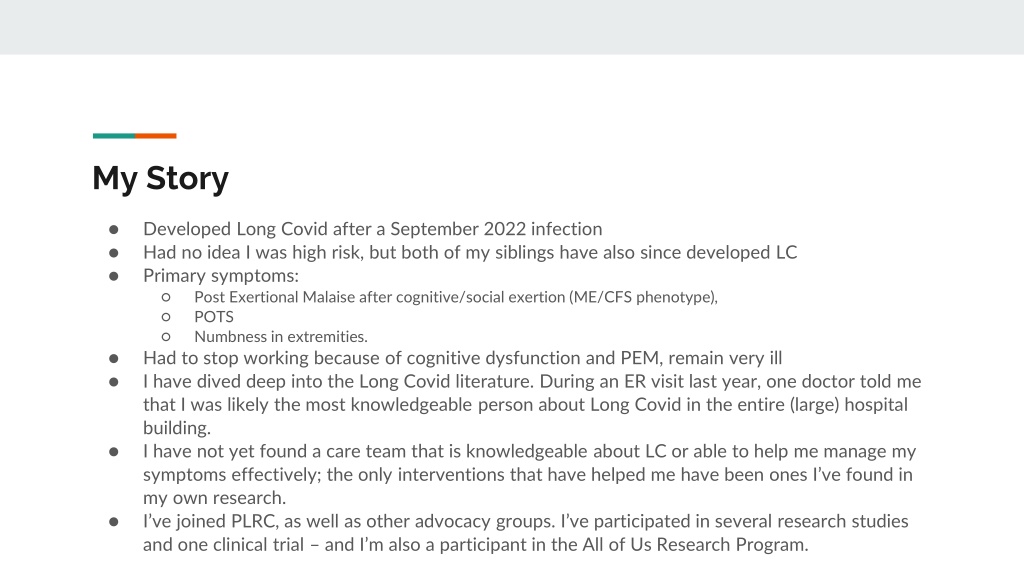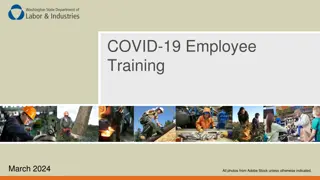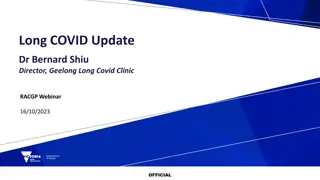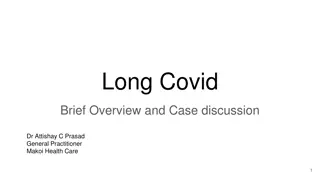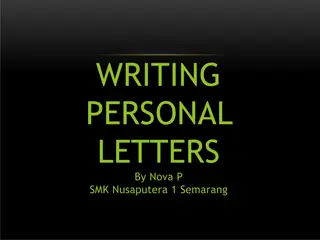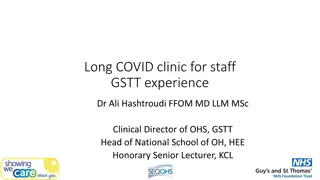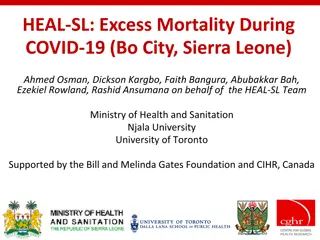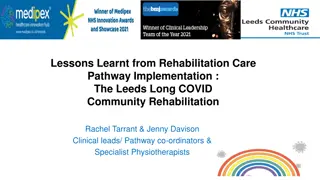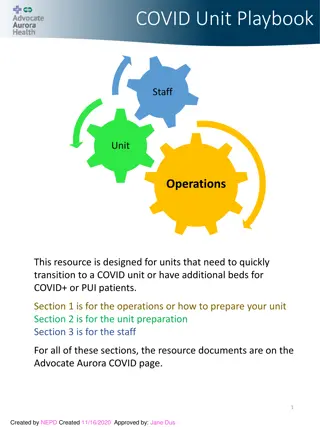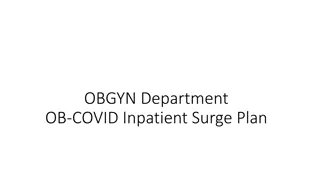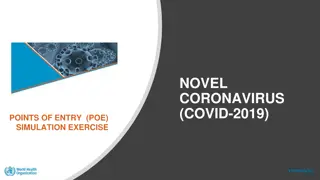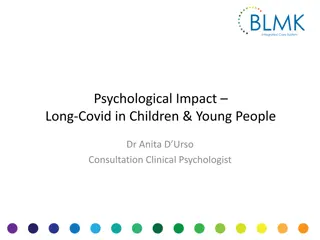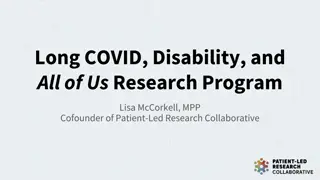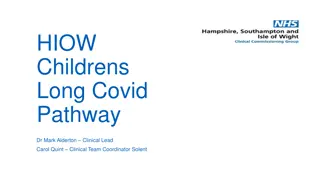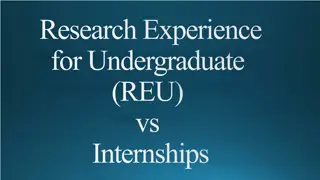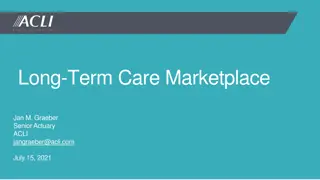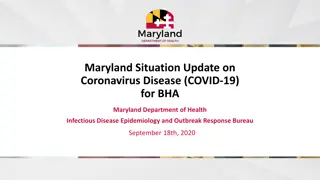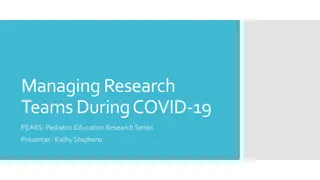Understanding Long Covid: Personal Experiences and Research Opportunities
Developed Long Covid post-September 2022 infection, facing barriers in finding knowledgeable care teams. Engaging in research studies, advocating for better accommodations and participating in All of Us Research Program. Exploring research opportunities to identify subsets of Long Covid individuals and study correlations with genetic susceptibility and social determinants of health.
Download Presentation

Please find below an Image/Link to download the presentation.
The content on the website is provided AS IS for your information and personal use only. It may not be sold, licensed, or shared on other websites without obtaining consent from the author. Download presentation by click this link. If you encounter any issues during the download, it is possible that the publisher has removed the file from their server.
E N D
Presentation Transcript
My Story Developed Long Covid after a September 2022 infection Had no idea I was high risk, but both of my siblings have also since developed LC Primary symptoms: Post Exertional Malaise after cognitive/social exertion (ME/CFS phenotype), POTS Numbness in extremities. Had to stop working because of cognitive dysfunction and PEM, remain very ill I have dived deep into the Long Covid literature. During an ER visit last year, one doctor told me that I was likely the most knowledgeable person about Long Covid in the entire (large) hospital building. I have not yet found a care team that is knowledgeable about LC or able to help me manage my symptoms effectively; the only interventions that have helped me have been ones I ve found in my own research. I ve joined PLRC, as well as other advocacy groups. I ve participated in several research studies and one clinical trial and I m also a participant in the All of Us Research Program.
Long Covid: Barriers to Research Participation and accommodations Energy Limitations Break up visits, allow remote participation, focus on important tests only, limit number of visits Cognitive Dysfunction Simplify instructions, limit surveys to those that are strictly necessary, provide materials in multiple formats Mobility Limitations Ensure clinic visits and tests are accessible to those at all levels of mobility and severity Medical Gaslighting Ensure that research team is well-versed in Long Covid, ensure that process is compassionate, be prepared for reactions from participants Infection Risk At minimum, all research staff should mask (N95 or better) Diagnostic Limitations A positive test for COVID-19 should not required Social Determinants of Health Conduct outreach to communities that are disproportionately affected by Long Covid Financial Limitations (and Impacts) Establish budgets to adequately compensate participants
My Experience with All of Us Why I signed up Important for All of Us to include people with Long Covid Ability to get information useful for me Ability to participate easily Surveys On-site specimen collection Genetic testing results
Research opportunities Identify subsets of people with diagnosed or suspected Long Covid Via EHR with U09.9 ICD-10 code (clinical diagnosis) Via EHR with COVID-19 diagnosis and common sequelae (http://doi.org/10.1001/jama.2023.8823) - noting that most COVID-19 cases are not diagnosed in EHR Via All of Us survey questions - give participants an option to self-declare Some research questions to get you started: What family health histories are typical of pwLC? Is there any evidence of genetic susceptibility to Long Covid? What correlations are there between social determinants of health and Long Covid diagnosis? Include patient reps in studies Collaborate with groups like the Patient Led Research Collaborative, PCORI Ensure study accessibility My website: https://longcovidstudies.net/ Collaborate with other researchers NIH RECOVER data now available
